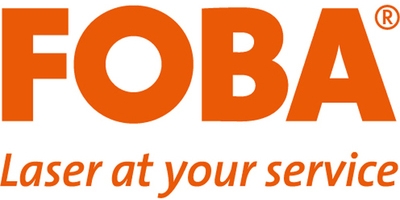FOBA Laser Marking + Engraving ALLTEC GmbH
- Manufacturer
- Germany
- Send request
FOBA Laser Marking + Engraving ALLTEC GmbH
- Manufacturer
- Germany
- Send request
25.07.2017 00:07
FOBA showcasing at the Fakuma - Laser marking on plastics
UV- and fiber lasers mark sensitive plastics or day-night-design components
At the Fakuma, the international exhibition for plastics processing in Friedrichshafen/Germany (October 17-21, 2017), FOBA will be showcasing special marking solutions for different plastics. As an internationally leading manufacturer of laser marking systems, FOBA will be presenting product news about the M3000-UV for sensitive plastics and new marking solutions especially made for day-night-design.
The M3000-UV is a 2 watt uv-laser stand-alone marking station with optional integrated camera. This system completes the existing range of wave lengths in the M-series as an addition to the well-established fiber-laser based systems. The UV laser is most appropriate to mark sensitive material as it creates only low heat level. The range of applications includes materials like silicone, HDPE, PET or PVC.
Thin multiple layers of lacquer on translucent plastics can be accurately removed by precisely tuned fiber lasers. The so called day-night-design creates brilliant color effects for best legibility in all lighting conditions, and also creates characters and symbols that can be backlit in the dark.
Manufacturers also use laser marking to ensure long-term traceability of a plastic part throughout its complete product life cycle and also to optimize logistics processes. Also, when markings are embedded in the plastic layers, products are protected against counterfeiting.
FOBA's marking systems with integrated camera enable pre- and post-inspection of parts and marking results, as well as providing exact alignment of the marking relative to the position of the product. This can prevent cost intensive marking errors and scrap can be reduced by up to 80 percent. Beyond that, an automatic autofocus, easy to operate via FOBA's marking software MarkUS, can significantly speed up set-up time.
At the Fakuma, FOBA's stand number 2112 will be in hall A2, showcasing the marking systems M1000 and M2000. Visitors will get the opportunity to experience vision-based laser marking on plastic show samples.
At the Fakuma, the international exhibition for plastics processing in Friedrichshafen/Germany (October 17-21, 2017), FOBA will be showcasing special marking solutions for different plastics. As an internationally leading manufacturer of laser marking systems, FOBA will be presenting product news about the M3000-UV for sensitive plastics and new marking solutions especially made for day-night-design.
The M3000-UV is a 2 watt uv-laser stand-alone marking station with optional integrated camera. This system completes the existing range of wave lengths in the M-series as an addition to the well-established fiber-laser based systems. The UV laser is most appropriate to mark sensitive material as it creates only low heat level. The range of applications includes materials like silicone, HDPE, PET or PVC.
Thin multiple layers of lacquer on translucent plastics can be accurately removed by precisely tuned fiber lasers. The so called day-night-design creates brilliant color effects for best legibility in all lighting conditions, and also creates characters and symbols that can be backlit in the dark.
Manufacturers also use laser marking to ensure long-term traceability of a plastic part throughout its complete product life cycle and also to optimize logistics processes. Also, when markings are embedded in the plastic layers, products are protected against counterfeiting.
FOBA's marking systems with integrated camera enable pre- and post-inspection of parts and marking results, as well as providing exact alignment of the marking relative to the position of the product. This can prevent cost intensive marking errors and scrap can be reduced by up to 80 percent. Beyond that, an automatic autofocus, easy to operate via FOBA's marking software MarkUS, can significantly speed up set-up time.
At the Fakuma, FOBA's stand number 2112 will be in hall A2, showcasing the marking systems M1000 and M2000. Visitors will get the opportunity to experience vision-based laser marking on plastic show samples.
More News
16.05.2018 00:00
Next step in vision-based laser marking presented at the LASYS
FOBA is showcasing the latest innovation in automated mark alignment without product fixtures, a fib...
Proven expertise in compliant laser marking on surgical instruments and implants led to double-digit...
25.01.2018 00:00
Fast and flexible: FOBA's new CO2-laser markers
High speed, highly variable material suitability, and flexible marking options are features of FOBAs...
08.01.2018 00:00
FOBA Introduces a 100-Watt Fiber Laser
High Laser Power for Robust Part Marking
Variable scan head tuning, configurable beam tur...
Variable scan head tuning, configurable beam tur...
FOBA introduces a marking system specifically designed for demanding Day-Night-Applications
Coordinated process of marking and passivation guarantees long time legibility, according to UDI reg...

